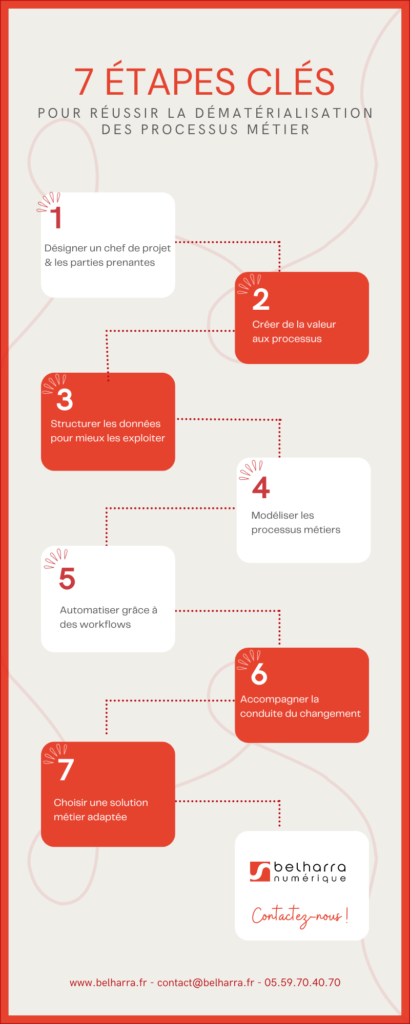- Digital business transformation
The dematerialization of business processes aims to unlock the potential of automation , efficiency and flexibility . This evolution is not limited to technology; it also involves significant cultural and organizational change. This is where change management comes into play, as it is essential to ensure the success of any digital transformation project.
Discover how these elements interact to create powerful synergy , transforming the way businesses operate, communicate and thrive in the digital age.





